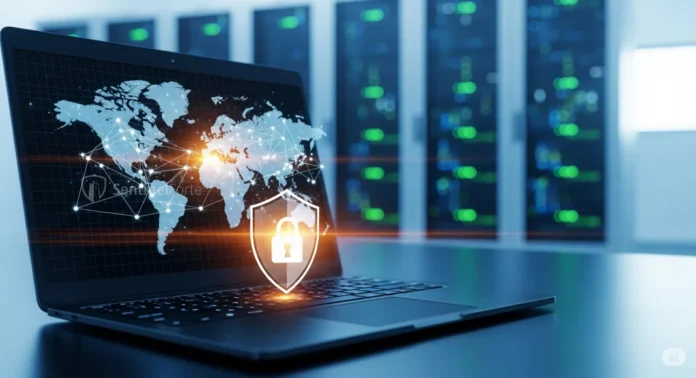In a digital world where data breaches dominate headlines and privacy feels ever-elusive, understanding how VPNs work isn’t just beneficial—it’s essential. Virtual Private Networks (VPNs) create secure tunnels for your data, safeguarding it from prying eyes. Here’s why both tech professionals and privacy-conscious users alike are embracing VPN technology.
Imagine sitting in your favorite café, sipping a latte, and checking your emails. Everything seems normal, right? But behind the comforting hum of coffee grinders lurks a potential threat. Public Wi-Fi networks, as innocent as they seem, are hotbeds for data theft. Cybercriminals often exploit these unsecured networks to intercept sensitive information like passwords and banking details. Enter the VPN, your digital guardian.
VPNs aren’t a new phenomenon—they were originally designed for corporate networks to allow remote employees secure access to internal systems. Today, they’ve evolved into an essential tool for everyone who cares about digital security. But what exactly happens when you click “connect” on your VPN app?
Let’s demystify it: When you activate a VPN, your internet traffic is routed through an encrypted tunnel to a VPN server. This not only masks your IP address—making your online activities anonymous—but also secures your data against interception. Think of it as sending a sealed envelope through a secret courier rather than an open postcard via regular mail.
Why VPNs Are Crucial in Today’s Cybersecurity Landscape
The necessity of VPNs escalates as cybersecurity threats become more sophisticated. According to Verizon’s 2024 Data Breach Investigations Report, 86% of data breaches involved stolen credentials or phishing attacks, highlighting the vulnerabilities in everyday online behavior. VPNs reduce this risk significantly, especially for remote workers and frequent travelers who rely heavily on public networks.
Moreover, with ransomware attacks on the rise, endpoint protection alone is no longer sufficient. VPNs provide an additional, critical layer of security. During a notable ransomware incident in 2024, businesses using VPNs reported significantly less damage compared to those without, underscoring their preventive power in real-world scenarios.
Debunking Myths: VPNs Aren’t Just for Tech Gurus
Many mistakenly believe VPNs are complicated tools reserved for IT professionals or DevSecOps practitioners. That’s no longer true. Modern VPNs are designed with intuitive interfaces, accessible even to the least tech-savvy users. Providers featured in SentinelForte’s “Best VPN Services 2025” guide offer user-friendly apps and robust customer support, making digital privacy achievable for everyone.
Choosing the Right VPN: What to Look For
Selecting the right VPN goes beyond mere privacy. Look for features like no-logs policies (meaning your activity isn’t stored), strong encryption standards (such as AES-256), and speed optimization. Recent tests show providers like NordVPN and ExpressVPN consistently topping charts for performance and security features.
Additionally, transparency matters. Trustworthy VPNs regularly publish independent audits of their services. This transparency not only enhances trust but also aligns with current cybersecurity trends emphasizing proactive and open practices.
Navigating Privacy Concerns and Global Restrictions
For global audiences, VPNs also serve as gateways to unrestricted internet access. In regions facing stringent internet censorship, VPNs help maintain freedom of information, enabling access to blocked content and services. This role has become increasingly significant as geopolitical events continue to shape digital freedom worldwide.
But VPNs aren’t without concerns. Critics argue that misuse of VPNs can facilitate illicit activities. However, the positive impact far outweighs potential negatives, provided responsible usage is emphasized.
In today’s connected yet vulnerable digital landscape, embracing VPNs is not just wise—it’s necessary. Whether you’re securing business assets, safeguarding personal data, or maintaining digital freedom, understanding and using VPN technology is your first and strongest line of defense.

